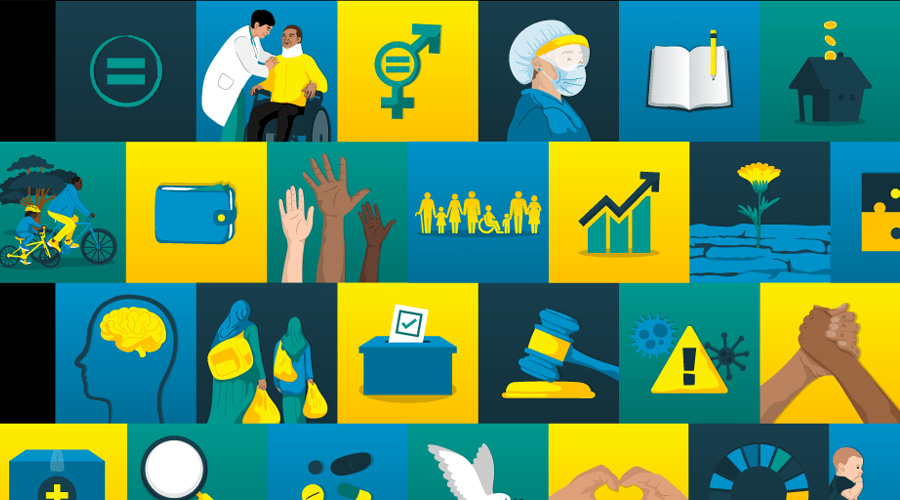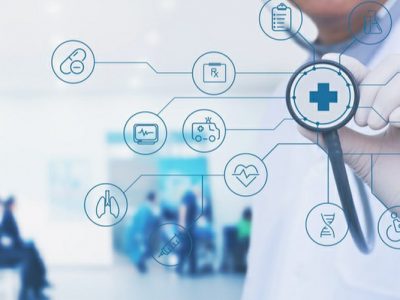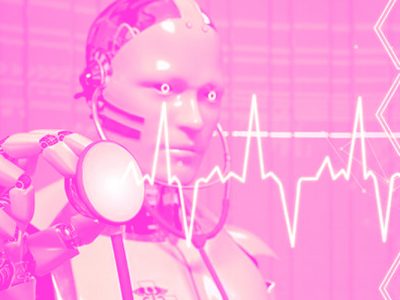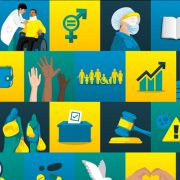
The dark side of AI in healthcare and the related fear of the technology in the healthcare
The Food and Drug Administration (FDA) approved a device that can capture an image of your retina and automatically detect signs of diabetic blindness. This new type of artificial intelligence technology is speedily spreading across the medical field as scientists develop systems that can recognize signs of illness and disease in a broad variety of images, from X-rays to CAT scans of the mind in healthcare. These AI tools in healthcare assure to assist doctors to assess patients more professionally and less expensively, than in the past. Similar forms of artificial intelligence in healthcare are likely to move ahead of hospitals into the computer systems used by healthcare regulators, billing companies, and insurance providers. Just as AI in healthcare will help doctors test your eyes, lungs, and other organs, it will help insurance providers determine reimbursement payments and policy fees. Ideally, such AI in healthcare would improve the efficiency of the healthcare system. But they may carry unplanned consequences, a group of researchers at Harvard and M.I.T. warns.
Software developers and regulators must consider such scenarios, as they construct and evaluate Artificial Intelligence technologies in the years to come, the dispute. The anxiety is fewer that hackers might cause patients to be misdiagnosed, although that possibility exists. More likely is that doctors, hospitals, and other organizations could influence the AI in healthcare in billing or insurance software in an attempt to maximize the money coming their way in healthcare.
Samuel Finlayson, a well-known researcher at Harvard Medical School and M.I.T. and one of the authors of the paper, warned that because so much money changes hands across the healthcare industry, stakeholders are previously bilking the system by delicately changing billing codes and additional data in computer systems that track healthcare visits regularly. AI tools in healthcare could intensify the problem.
Mr. Finlayson and his colleagues have raised the same question in the medical field: As regulators, insurance providers, and billing companies begin using Artificial Intelligence in healthcare in their software systems, businesses can study to game the fundamental algorithms.
If an insurance company uses AI tools in healthcare to assess medical scans, for example, healthcare could manipulate scans in an attempt to boost payouts. If regulators build Artificial Intelligence systems to evaluate the latest technology, device makers could modify images and other data in an attempt to trick the system into granting regulatory approval.
In their paper, the researchers confirmed that via means of converting a small range of pixels into a picture of a benign skin lesion, diagnostic AI equipment in healthcare can be tricked into figuring out the lesion is malignant. Simply rotating the picture can also have an identical effect, they found. Small changes to written descriptions of a patient’s situation additionally should adjust an Artificial Intelligence analysis: “Alcohol abuse” should produce an extraordinary analysis than “alcohol dependence,” and “lumbago” should produce an extraordinary analysis than “back pain.”
In turn, converting such diagnoses in one manner or another should readily benefit the insurers and healthcare organizations that in the long run benefit from them. Once AI is deeply rooted in the healthcare system, the researchers argue, the business will gradually undertake conduct that brings in the maximum money. The stop result should damage patients, Mr. Finlayson said. Changes that doctors make to scientific scans or different patient data which will fulfill the AI in healthcare utilized by coverage companies should come to be on a patient’s everlasting report and affect selections down the road.
Already doctors, hospitals, and different organizations once in a while control the software structures that manipulate the billions of dollars transferred throughout the industry. Doctors, for instance, have subtly modified billing codes — for instance, describing an easy X-ray as an extra complex scan — to be able to enhance payouts. Hamsa Bastani, an assistant professor at the Wharton Business School at the University of Pennsylvania, who has studied the
manipulation of healthcare structures believes its miles are huge trouble.
As a consultant in machine-mastering structures, she questioned whether or not the advent of AI tools in healthcare will make the trouble worse. Carrying out an opposed assault in the actual global is difficult, and it’s still unclear whether or not regulators and coverage companies will undertake the type of machine-learning algorithms which can be at risk of such attacks.



















